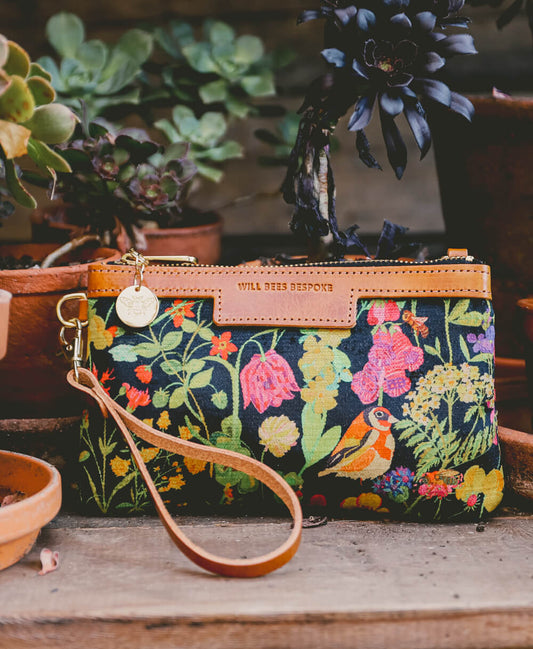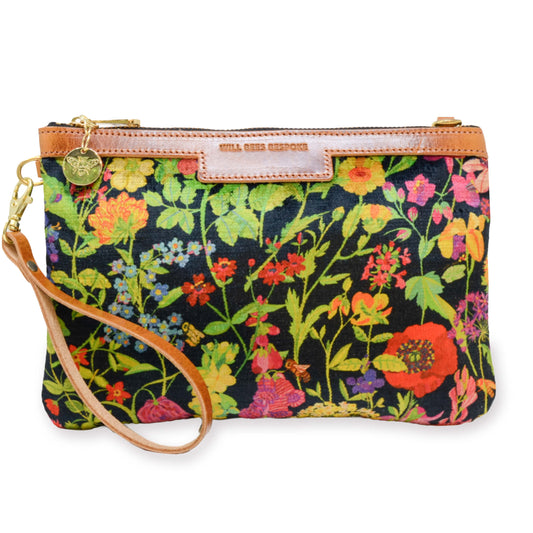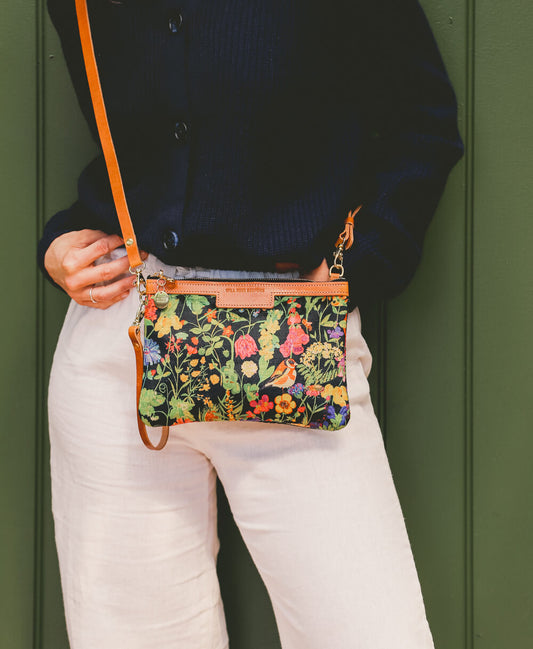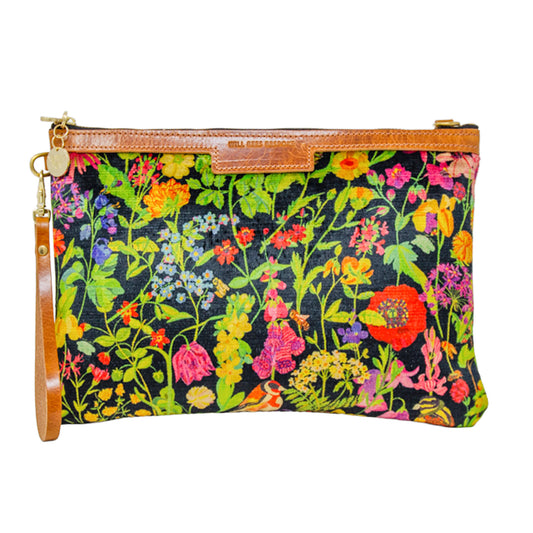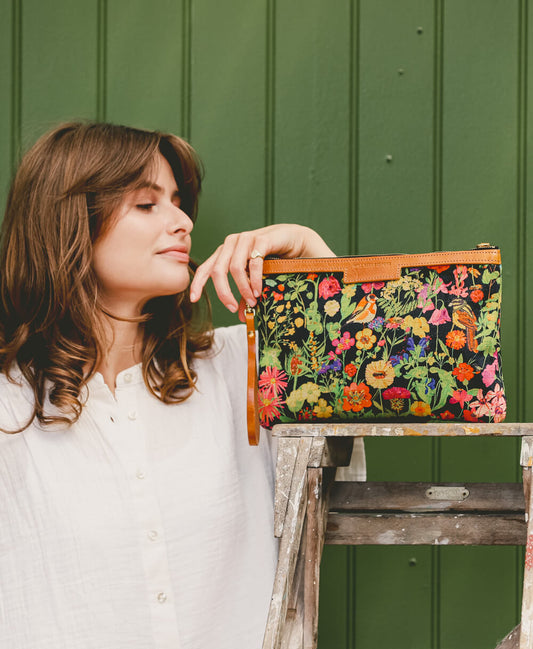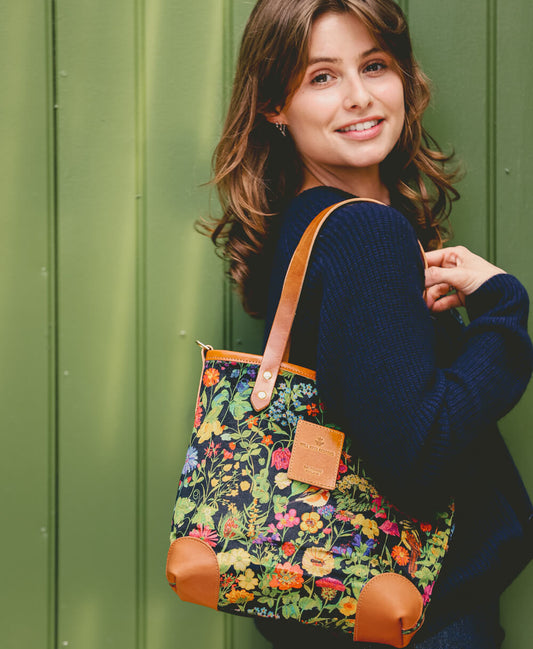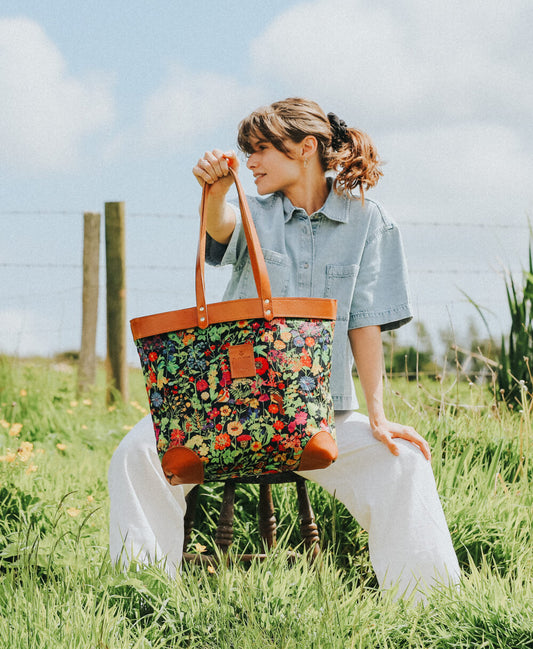The Woven Meadow
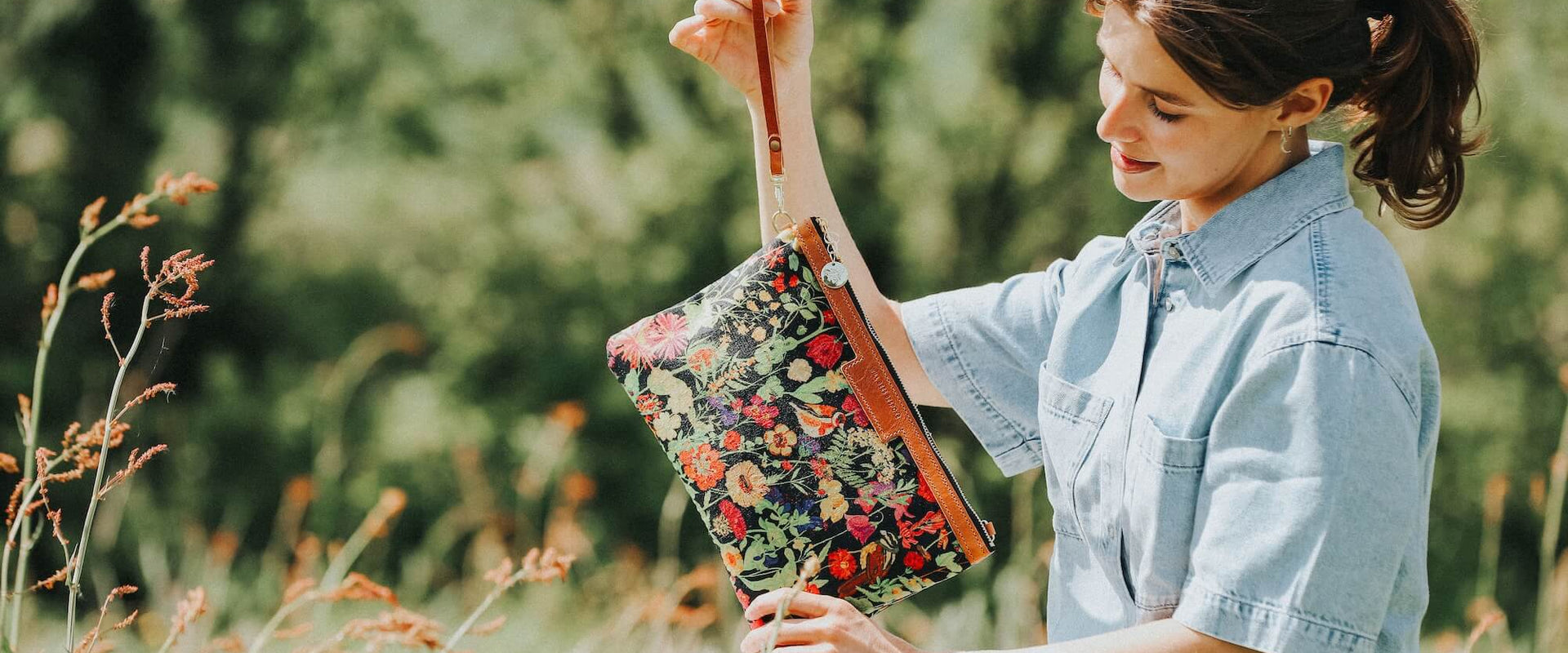
-
Mini Diana 2 in 1 ClutchWoven Meadow in BrambleRegular price £69.95Regular priceUnit price / per
-

-
Diana 2 in 1 ClutchWoven Meadow in BrambleRegular price £99.95Regular priceUnit price / per
-
Oversized Diana 2 in 1 ClutchWoven Meadow in BrambleRegular price £139.95Regular priceUnit price / per
-
Small ToteWoven Meadow in BrambleRegular price £149.00Regular priceUnit price / per
-
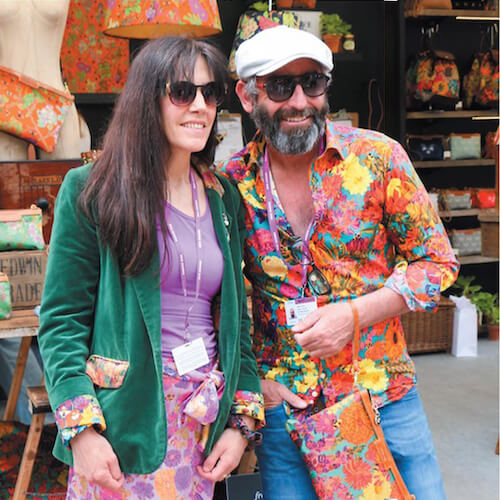
-
Large ToteWoven Meadow in BrambleRegular price £199.00Regular priceUnit price / per
-
Eye MaskWoven Meadow in BrambleRegular price £19.95Regular priceUnit price / per
Recently Viewed
The Woven Meadow
The Woven Meadow was inspired by meadow and hedgerow planting.
Floral sketches were individually hand drawn in vintage photograph albums purchased from Liberty sample sales in the early 2000s.
These sketches were then painted in a style of the observer - ‘who takes their small palette of watercolours into nature and paints for pleasure not to replicate identically but to record their findings in an intimate and individual way’.
Each meadow flower, bee, bird and moth was chosen for Will Bees Bespoke by one or more of the over 70 members of Women&Bees.
The watercolours used in this instance were ‘A Gallo’ - these paints are made by hand and feature earth, mineral and plant based pigments. Local honey and rosemary oil blend with the raw pigment, gum arabic and a wetting agent to provide a highly pigmented tint, perfect for capturing the stunning tones of a floral meadow.
When painted the florals were scanned into the computer and grew into a pollinator meadow where once they were digitally planted they were joined by bees, birds and a moth - the pollinators they were created for.
The creation of this design we hope will promote the research showing that meadows are as bio-diverse as a rainforest, they herald the start of Spring and their existence in our eco-system is of vital importance. Encouraging the planting of pollinator meadows can lead to around three million flowers blooming in a single acre in summer.Wildflowers with their mainly single open heads offer very accessible nectar and pollen to honey, bumble and solitary bees as well as valuable shelter and rest places when needed. Wildflower meadows can be grown in a pot, on a window sill, scattered in a park as well as in gardens and fields. They are one of the easiest ways to help our declining pollinators.
Since the 1930s the decline in wildflower meadows has greatly affected our bee population, three bumblebees have become extinct with many more bumble and solitary bees on the endangered list.

